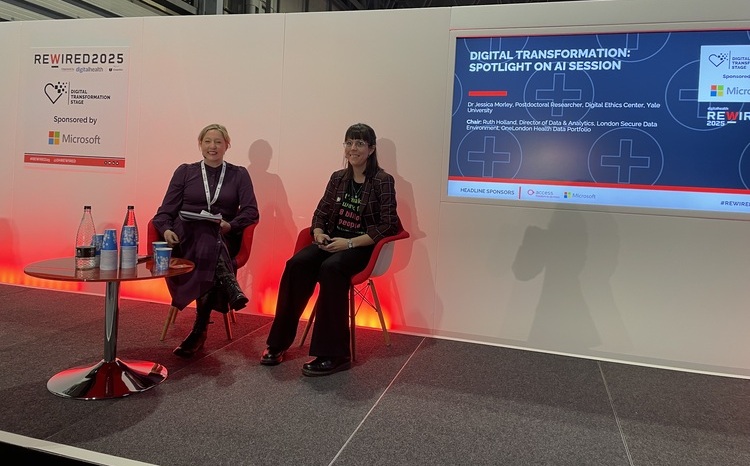‘Desperate shortage of clinical coders creates financial uncertainty’
- 19 December 2024

Qualified clinical coders are vital to ensure clinical information and funding flows around the system correctly. But a national shortage of coders is having wide-ranging consequences, argues Dr Marc Farr, chair of the Chief Data and Analytical Officer Network
Accurate and timely clinical coding is vital to ensure both clinical information and funding flows around the NHS correctly.
It forms the basis of every data set that informs vital clinical research, and it enables leaders to effectively monitor the quality of clinical services. In short, it is the common language that enables the entire health and care system to function, enabling us to make knowledge the enemy of disease.
But right now, there is a desperate national shortage of clinical coders, professionals tasked with translating those snapshots from a patient’s care record into a standardised, internationally recognised form.
The coding backlogs that this shortage has caused are leading to financial uncertainty across the NHS, potentially limiting resources for patient care and reducing clarity around already stretched budgets. Sadly, we don’t see a clear plan from NHS England to resolve this problem.
Providers that rely on precise coding to secure funding under the payment by results model are missing out on the income they need to accurately state their budgets and negotiate with ICB and NHSE colleagues on how funding should be distributed regionally to reduce inequalities in access to acute care.
Wider consequences
Alongside the reduced income position of trusts, geographic disparities in the supply of coding professionals are exacerbating the problem. NHS trusts outside London face additional challenges in hiring qualified coders, as financial constraints and regional accessibility issues create staffing shortages. We simply must address the geographic disparities in coding resources to prevent an uneven strain on trusts, particularly in less accessible areas.
That’s what we face in the here and now, but there are other consequences we could face if we ignore this issue. The drive in the government’s 10-year plan for the UK to lead in life sciences means that we need to rapidly develop research-ready datasets that incorporate the use of SNOMED-CT, mapped to patients’ diagnoses and procedures.
As data becomes more ‘liquid’, we see that all roads lead back to the clinical coding function
Elsewhere, the ability to effectively create data-driven insights to target interventions that prevent illness and address healthcare inequalities is also heavily shaped by the availability of correctly coded health data. As data becomes more accessible and more ‘liquid’, we see that all roads lead back to the clinical coding function. Data is the new oil, as more and more commentators say.
Chief data and analytical officers (CDAO) working at both trust and regional level up and down the country work closely with coders to enable us to transform the way the NHS uses analytics and drive change by providing actionable insights to other health and care leaders.
Shaping strategic priorities
As a relatively new role, the CDAO function is engaged in helping care systems shape their strategic priorities and to help them understand the potential of new technologies.
In ‘What makes a Top CDAO?’, a new report that the CDAO Network has authored in conjunction with Hunter Healthcare, we have heard the perspectives of over 25 leaders in healthcare data and analytics to understand the key strategic priorities they are helping to shape within their organisations.
These include assessing the value and practicality of the federated data platform (FDP) and the secure data environment within their respective organisations to integrate data from multiple sources to improve patient care and operational efficiency. There remain key concerns from within the CDAO and analyst community about these programmes’ current implementations, particularly a lack of integration with vital datasets from community, mental health, and primary care providers.
Chief data and analytical officers are playing a key role in guiding the safe and effective use of AI in healthcare
Some of my colleagues have expressed their frustrations over the lack of clarity and expertise from these programmes’ suppliers, arguing that the NHS at a regional level needed more involvement in the procurement process to help make it successful. Right now, we see challenges in aligning national initiatives like the FDP with local priorities, and this will be a critical task for CDAOs guiding their teams through evolving data landscapes.
Elsewhere we are playing a crucial role in guiding the safe and effective use of artificial intelligence in healthcare, ensuring that its implementation supports strategic objectives and improves efficiency within and between organisations.
A key role we play right now is in translating these AI capabilities to our senior leadership, helping them to understand why they may wish to choose one AI technology over another and navigating the ethical and infrastructure challenges of adopting these types of platforms.
The success of our roles lies in the ability to create a culture of data-driven decision-making, to inspire innovation and to lead teams in transforming raw data into actionable insights. To help us in achieving those goals, we need a strong group of qualified clinical coders creating that standardised clinical data. We look forward to engaging with national leadership in developing that pipeline of talent and addressing the coder shortage we currently face.
 Dr Marc Farr is CDAO at East Kent Hospitals University NHS Foundation Trust, NHS Kent and Medway and chair of the CDAO Network. He is also a non-executive director of the Association of Professional Healthcare Analysts.
Dr Marc Farr is CDAO at East Kent Hospitals University NHS Foundation Trust, NHS Kent and Medway and chair of the CDAO Network. He is also a non-executive director of the Association of Professional Healthcare Analysts.





